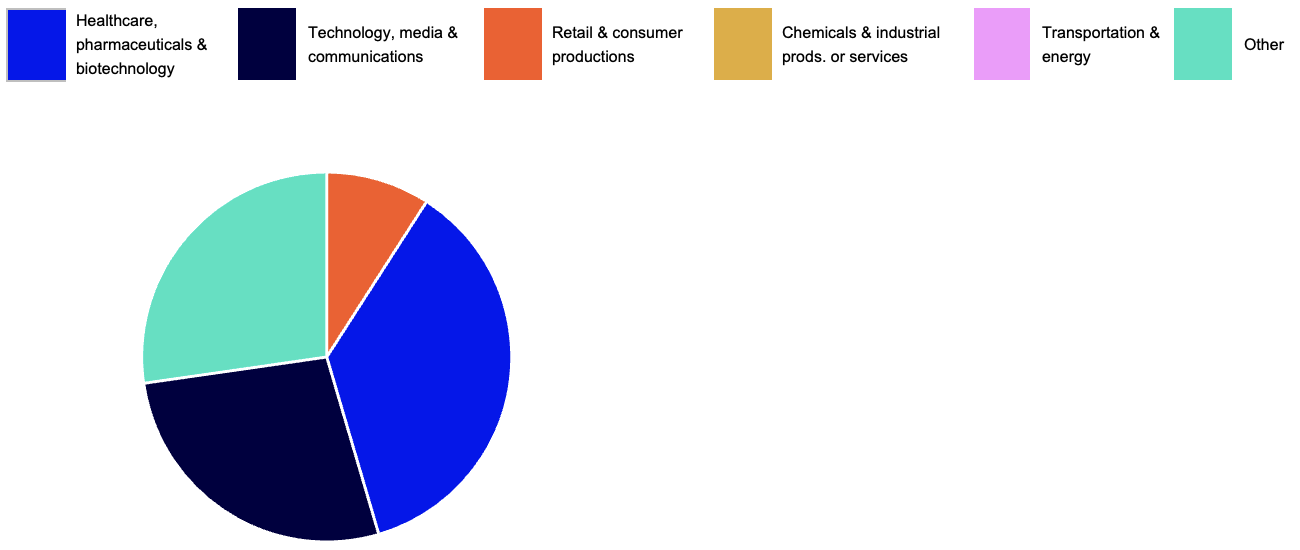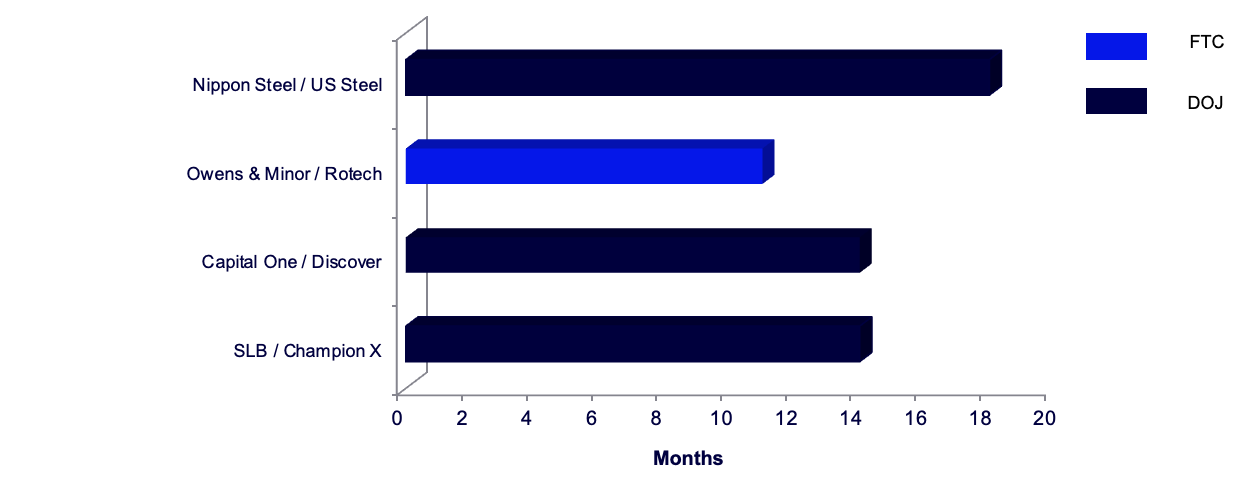Under the second Trump administration, the Federal Trade Commission (FTC) and Department of Justice (DOJ) have signaled a significant departure from the antitrust enforcement policies of the Biden administration. This new approach is characterized by a renewed willingness to accept structural remedies, such as divestitures, to resolve competitive concerns in mergers. Alongside this, the agencies are actively working to accelerate the merger review process, reinstating early terminations of the Hart-Scott-Rodino waiting period to allow non-problematic deals to close more quickly.
Return of structural remedies
The Federal Trade Commission (FTC) and Department of Justice (DOJ) under President Donald Trump have made good on their promises to accept structural remedies, i.e., remedies involving divestitures, to resolve concerns with transactions. In recent months, the FTC announced a settlement regarding Synopsys’ acquisition of Ansys, while the DOJ entered into settlements allowing three transactions to proceed: Hewlett Packard Enterprise (HPE) / Juniper Networks, Safran / Raytheon, and Keystone / Spirent. This flurry of consent decrees stands in contrast to the Biden administration, which did not accept a prelitigation divestiture for the last two years of its administration and strongly disfavored merger remedies.
Despite the current agencies’ willingness to enter into settlements, they have emphasized the importance of “clean” divestitures and strong divestiture buyers. FTC Commissioner Melissa Holyoak, for example, has stated that the FTC will not hesitate to litigate when a proposed remedy is inadequate. In Synopsys / Ansys, FTC Chair Andrew Ferguson issued a statement, joined by the two other commissioners, outlining the FTC’s stance on merger remedies. Ferguson noted the benefits of merger settlements, including allowing the procompetitive aspects of a merger to proceed and conserving finite agency resources. Nevertheless, he emphasized that the FTC must be “clear-eyed” about the dangers of inadequate settlements. In particular, Ferguson stated that the FTC ordinarily will not accept a structural remedy unless it involves the sale of a standalone or discrete business, and the divestiture buyer has the resources and experience necessary to make that standalone business competitive. As for behavioral remedies, Ferguson said the FTC should approach such remedies with “substantial caution.” The Trump FTC did accept a behavioral remedy to resolve its concerns with Omnicom / Interpublic, but that was an atypical behavioral remedy aimed at addressing concerns about suppression of conservative speech.
Following the settlement of United Health / Amedisys and the withdrawal of the litigation against AMEX GBT / CWT, one merger challenge is proceeding to trial: GTCR BC Holdings, LLC / Surmodics, Inc.
Agencies continue to promote reaching merger decisions quickly
Consistent with the current, more business-friendly attitudes of the FTC and DOJ toward dealmaking, the two agencies also are making efforts to allow nonproblematic mergers to proceed more quickly. The FTC has brought back the practice of granting early termination of the Hart-Scott-Rodino (HSR) waiting period, a practice the FTC suspended under the Biden administration. FTC Commissioner Holyoak has stated that requests for early termination will help reduce the workload of FTC staff and help parties close transactions more quickly. Since restarting the early termination program, the FTC has granted more than 100 early termination requests. Assistant Attorney General (Antitrust Division) Gail Slater has stated that the DOJ has been looking for other ways to speed up the merger review process, as well. FTC Chair Ferguson said that the FTC “must get out of the way quickly” when a merger would not violate antitrust laws, to avoid bogging down innovation and interfering with the free market. These statements stand in contrast with the approach of Biden administration enforcers, which was to try to slow down dealmaking generally.
The rise of “America First Antitrust”
The FTC and DOJ appear willing to promote Trump administration goals through their antitrust enforcement programs. In her first public address as assistant attorney general of the Antitrust Division, Gail Slater discussed the concept of “America First Antitrust,” focused on the needs of “forgotten” workers and consumers, small businesses, manufacturing, and family-owned agribusiness. She went on to say that deregulation and transparency are key to these efforts.
In Omnicom / Interpublic, the FTC required an unusual behavioral remedy aimed at protecting conservative speech, a concern of the Trump administration. The settlement prohibits Omnicom from directing advertising spend toward or away any media publisher based on the publisher’s political or ideological viewpoints. The FTC entered into this settlement despite FTC Chair Ferguson’s statement in Synopsys / Ansys that the FTC should approach behavioral remedies with “substantial caution.”
US M&A activity: By the numbers
Number of enforcement actions in key industries1

Snapshot of selected enforcement actions2
Time from signing to consent or investigation closing

Endnotes
1 For the US, this chart includes cases where we are aware an antitrust enforcement agency issued a second request and the investigation remained ongoing during the quarter, the agency accepted a consent order or filed a complaint to initiate litigation, or the transaction was abandoned following an antitrust investigation.
2 This chart is based on McDermott Will & Schulte internal analysis and public press reports and filings. It does not represent a complete list of all matters within a jurisdiction.
[View source.]